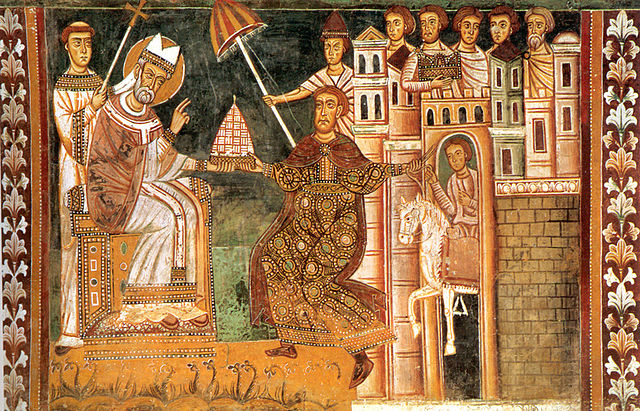An infinite number of things happen; we bring structure and meaning to the world by making art and telling stories about it. Every work of literature created by human beings comes out of an historical and cultural context, and drawing connections between art and its context can be illuminating for both. Today’s guest, Stephen Greenblatt, is one of the world’s most celebrated literary scholars, famous for helping to establish the New Historicism school of criticism, which he also refers to as “cultural poetics.” We talk about how art becomes entangled with the politics of its day, and how we can learn about ourselves and other cultures by engaging with stories and their milieu.
Tag: Shakespeare
Reply to Colin Walker on the idea of a required reading page
Sadly the depth and breadth of available literature has exploded since Gutenberg making it nearly impossible for anyone in a modern audience to have read and know what the author may presume them to know. As an example, in Shakespeare’s day many of his side references would be known by even the uneducated, while most modern students have to rely on Cliff’s Notes or annotated editions to understand those cultural references. The modern day equivalent is that most avid fans of the Simpsons television show are also generally well educated on popular film since the 1940s, otherwise they’re missing 90% of the jokes.
Things become much more stilted within the blogging arena, particularly when a writer may cover a dozen areas or more in which they may have significant experience, but which will likely be completely unknown to some of their regular readers, much less new readers who aren’t specialists in these fields themselves. This may turn away readers at worst, but will destroy the conversation at best. (Though I will admit it doesn’t seem deter some of the lookie-loos from taking at shot at interacting on the lowest levels at Terry Tao’s blog.)
In some sense, in knowing their audience, writers have to have some grasp of what they do or don’t know, otherwise it becomes difficult to communicate those progressively more expanding thoughts. Having hyperlinks certainly helps within a piece, much the way academics footnote journal articles, but it can be just as painful for the writer to constantly be referring back to the same handful of articles constantly. In this sense, having a recommended/required reading section may be useful, particularly if it were ubiquitous, but I suspect that the casual drive-by reader may not notice or care very much. However, for that rare <5% it may be just the primer they’re looking for to better understand you and what you’re writing about.
One of the most difficult things to do in a new job or when entering a new field is to become aware of the understood culture and history of the company or the field itself. One must learn the jargon and history to contextualize the overarching conversation. Jumping into Dave Winer’s blog without knowing his background and history is certainly a more painful thing than starting to read someone whose blog is less than a year old and could thus be consumed in a short time versus thousands upon thousands of posts since the literal start of blogging on the internet. It’s somewhat reminiscent of David Shanske’s problem of distilling down a bio for an h-card from the rest of his site and his resume. What do you want someone you’ve just met to know about you to more quickly put you into a broader context, especially when you want them to get to know you better?
I think we’re all in the same boat as David in figuring out the painful path of distilling all this down in a sensible and straightforward manner. I’m curious to see what you come up with and how it evolves over time.
👓 Delta, Bank of America End Sponsorship of New York’s Public Theater Over Trump-Like ‘Julius Caesar'” | Hollywood Reporter
“No matter what your political stance may be, the graphic staging of 'Julius Caesar' at this summer’s Free Shakespeare in the Park does not reflect Delta Air Lines’ values," the airline said in a statement.
Where’s the possible angle on the story that these companies are doing this for potential Trump retribution? What about other sponsors? Are they experiencing customer fall-out over their support of the piece? This story stopped far too short.
Reply to What is the Bibliotheca Fictiva?
I’m not seeing it available on Amazon yet…
The Two Cultures
A good many times I have been present at gatherings of people who, by the standards of the traditional culture, are thought highly educated and who have with considerable gusto been expressing their incredulity of scientists. Once or twice I have been provoked and have asked the company how many of them could describe the Second Law of Thermodynamics. The response was cold: it was also negative. Yet I was asking something which is the scientific equivalent of: Have you read a work of Shakespeare’s?
I now believe that if I had asked an even simpler question — such as, What do you mean by mass, or acceleration, which is the scientific equivalent of saying, Can you read? — not more than one in ten of the highly educated would have felt that I was speaking the same language. So the great edifice of modern physics goes up, and the majority of the cleverest people in the western world have about as much insight into it as their neolithic ancestors would have had.
in 1959 Rede Lecture entitled “The Two Cultures”


